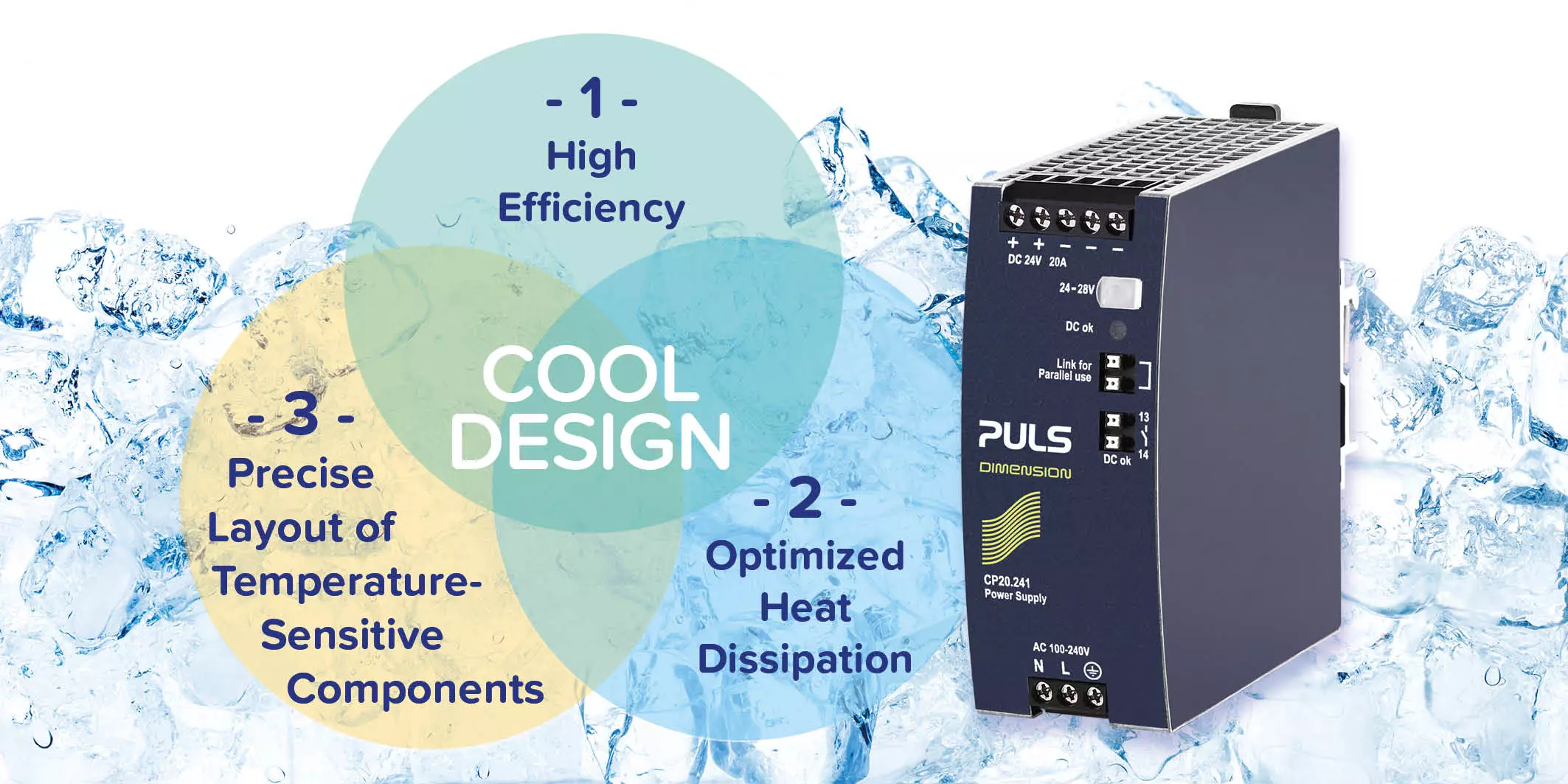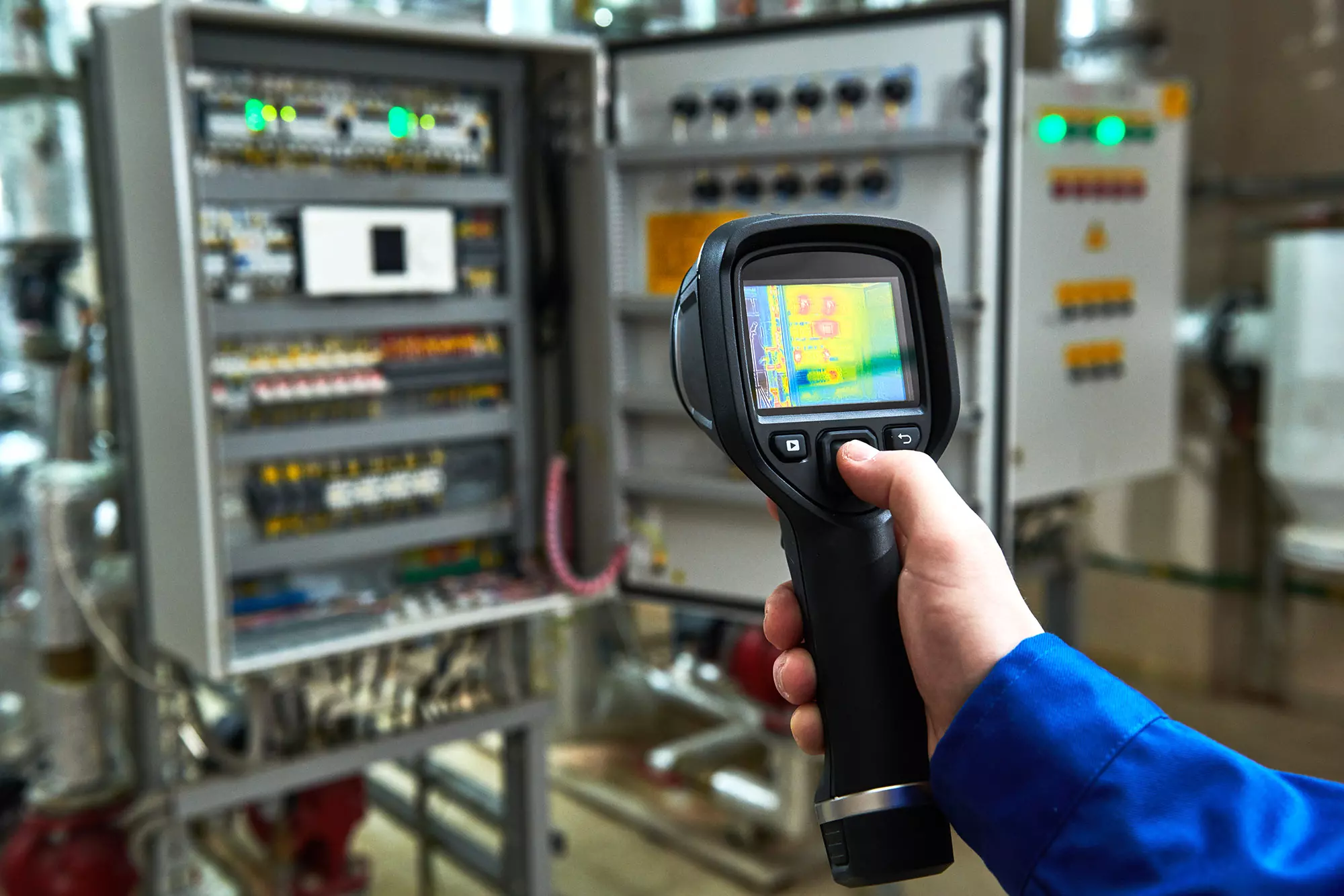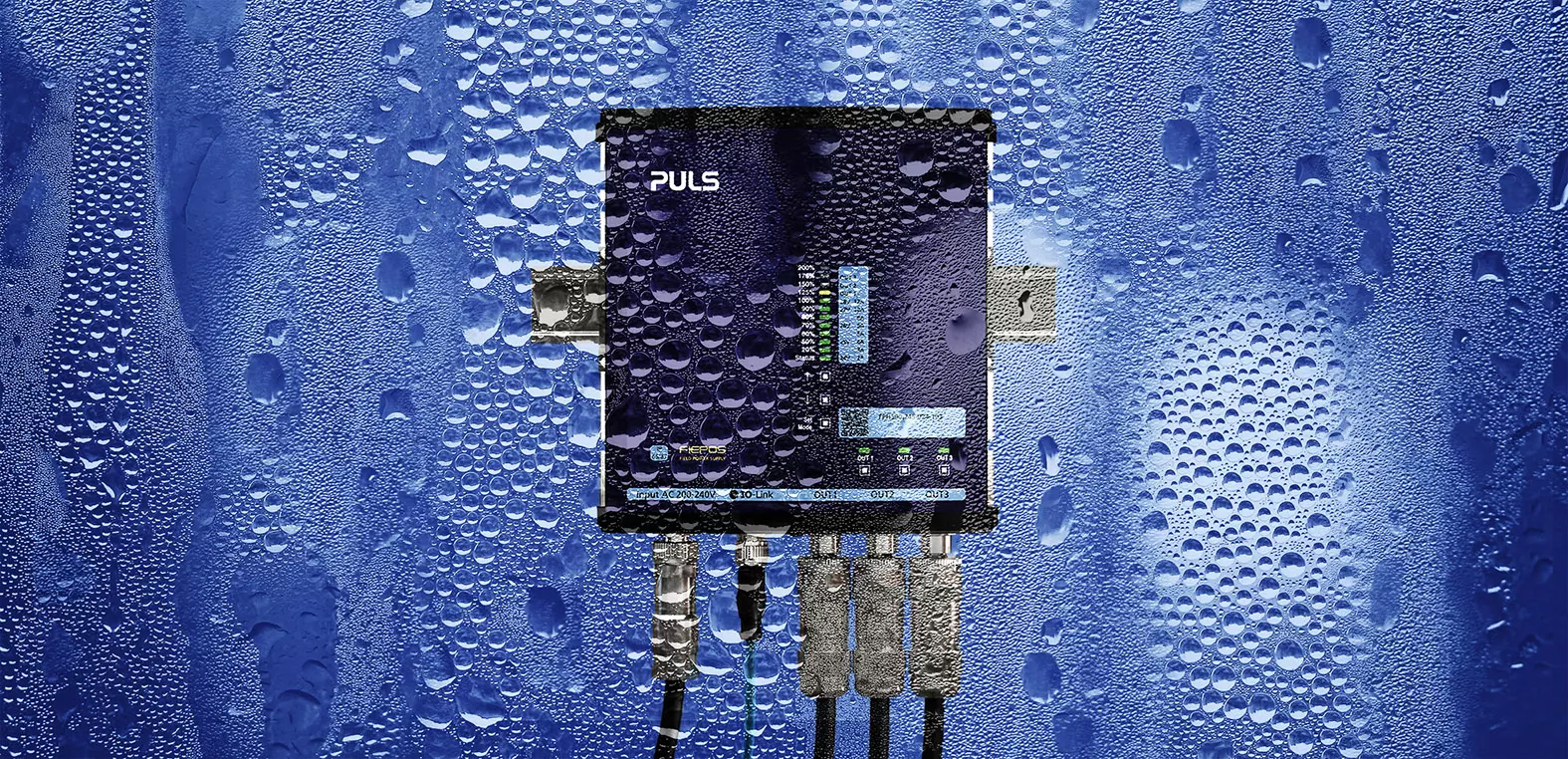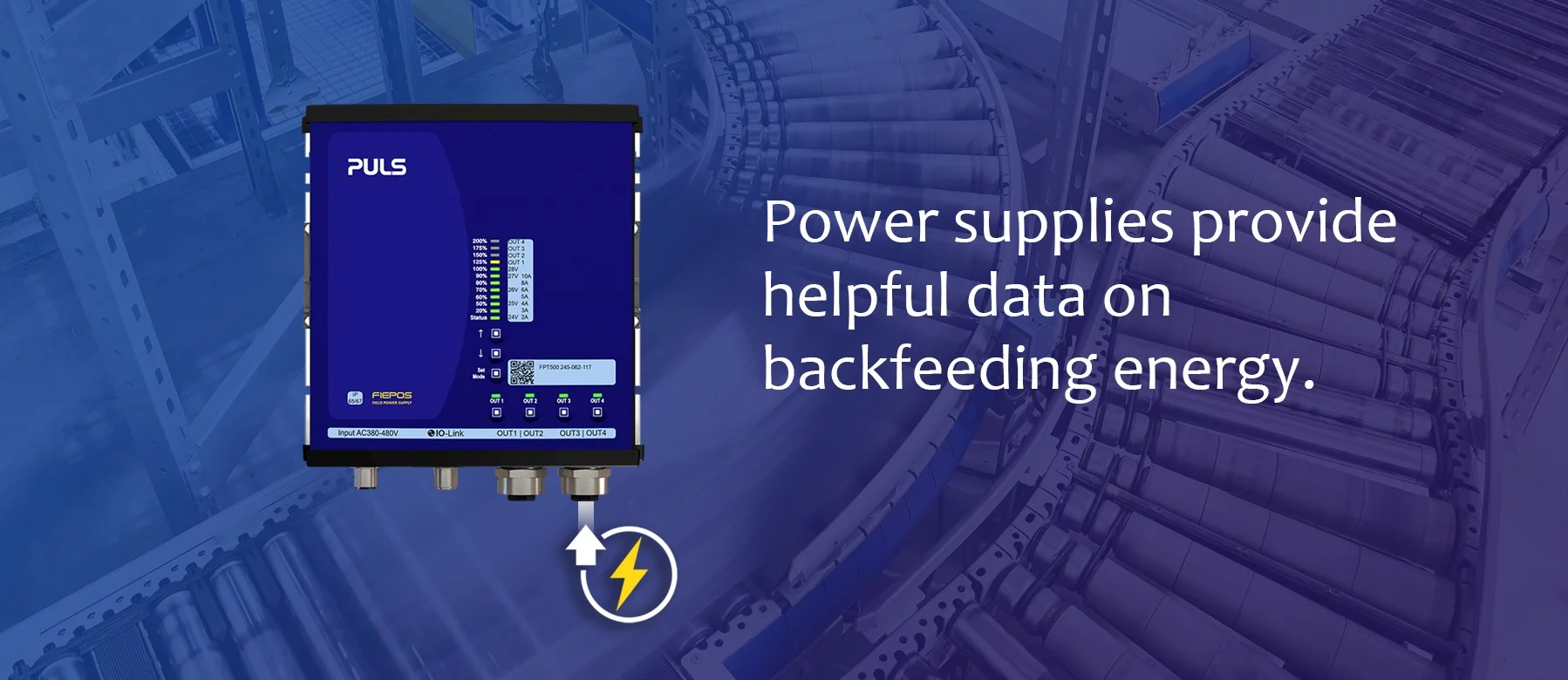© Copyright PULS GmbH
Basics

What does the MTBF (Mean Time Between Failures) tell you?
March 22, 2023
MTBF is the measure for the reliability of a device or system component. In this blog article you will learn what exactly is meant by MTBF, why it is an important quality indicator for power supplies and how it differs from service lifetime. The term MTBF appears in the data sheets of various technical system […]

DIN rail power supply units: How the service lifetime is determined by the temperature
July 22, 2022
Higher efficiency means less heat An essential factor for low heat generation in the power supply is, a high efficiency of the unit. The efficiency value describes the ratio of output power to input power of a power supply. The difference is converted into heat as loss. The advantage of high efficiency is obvious on […]

What does derating mean for power supplies? And when is it necessary?
July 14, 2022
Derating is a protective measure which allows the use of power supplies at high temperatures, at high altitudes or in alternative mounting orientations. In this blog article you will learn what you should consider when it comes to derating. Most power supply manufacturers specify ratings for lifetime, output current, and reliability (e.g. MTBF) for their […]

What is AC Inrush Current? How can it be limited?
May 17, 2022
A high inrush current is problematic for an efficient and simplified system design. Therefore power supply manufacturers try to keep AC inrush as low as possible. In this blog article you will learn why inrush current occurs in power supplies and which methods manufacturers apply to minimize it. Probably most of us already have noticed […]

How does a power supply work?
March 31, 2022
The power supply is the heart of any electronic system or machine. In this BLOG article we will explain how a power supply works on a very basic level. You will also learn more about the difference of an AC/DC converter and a DC/DC converter. Step by step to DC voltage If we look at […]


